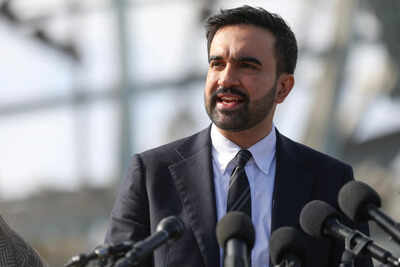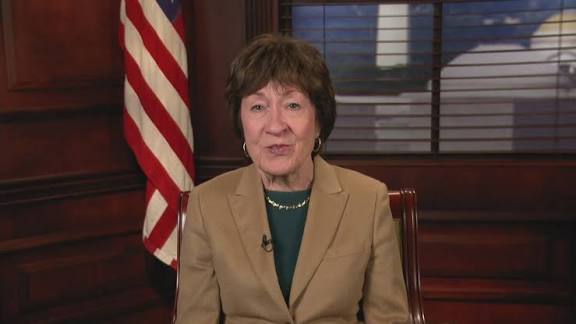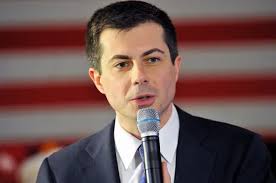who won the nobel peace prize 2025: Awarded to Maria Corina Machado,Nominees 2025
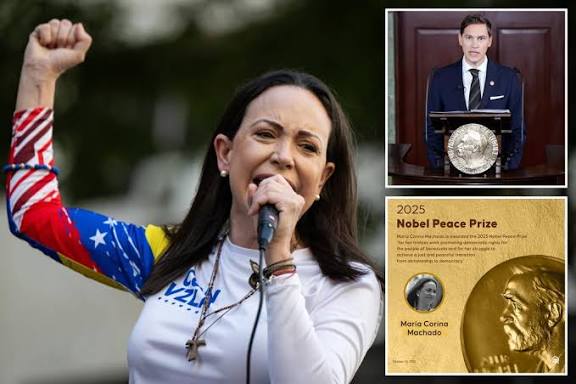
Venezuela’s ‘Iron Lady’, an opposition leader currently in hiding, has been praised by the Nobel Committee. Today we will discuss about who won the nobel peace prize 2025: Awarded to Maria Corina Machado,Nominees 2025
who won the nobel peace prize 2025: Awarded to Maria Corina Machado,Nominees 2025
The 2025 Nobel Peace Prize has drawn global attention. On October 10, 2025, the Norwegian Nobel Committee announced that the laureate is María Corina Machado, a Venezuelan opposition leader. Her award is widely described as a recognition of her “tireless work promoting democratic rights … and for her struggle to achieve a just and peaceful transition from dictatorship to democracy.”
In this article, we will explore:
Who María Corina Machado is — her background, activism, and role in Venezuela
Why she was chosen for the Nobel Peace Prize 2025, including the official rationale
The nomination process and likely contenders (i.e. nominees)
Reactions, implications, and critiques
Reflections on the meaning of this award in the current global context
1. María Corina Machado: Background and Political Profile
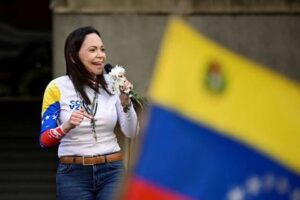
Early life and education
María Corina Machado was born in Caracas, Venezuela, on October 7, 1967. She trained as an industrial engineer — a technical education grounding her in analytical thinking. Her family background is relatively affluent, with strong business connections, which in turn drew criticism from Venezuela’s socialist government, which often frames her as part of an elite opposition class.
Entry into politics and activism
Machado first gained prominence in civic activism. She was a cofounder of Súmate, a Venezuelan volunteer organization that monitors elections and encourages citizen participation in democracy. In subsequent years, she became a vocal critic of the administrations of Hugo Chávez and, later, Nicolás Maduro.
She also served as a member of Venezuela’s National Assembly (the legislature) from 2010 to 2014, having been elected with one of the highest vote counts in that election cycle. However, she was removed from office in moves widely criticized as politically motivated.
In 2013, she founded Vente Venezuela, a liberal and pro-democracy party, where she remains a leading figure.
Recent years: repression, exile, and resistance
In recent years, Machado’s political trajectory has been marked by increasing repression. She won the opposition’s primary in 2023, preparing to challenge Maduro in 2024, but was barred from running by the Venezuelan courts, on charges and rulings considered by many observers as politically motivated.
Facing threats and persecution, she was forced into hiding within Venezuela. Nonetheless, the Nobel Committee noted that despite serious threats to her life, she chose to stay in the country, not flee.
Many of her senior advisers and political allies have been arrested, exiled, or forced underground.
Thus, Machado’s career has evolved from civic activism and election monitoring, to opposition leadership under extreme constraints, making her a symbol of democratic resistance in Venezuela.
2. Why Machado Was Awarded the Nobel Peace Prize 2025
Official rationale
The Nobel Peace Prize press release states that María Corina Machado meets all three criteria specified by Alfred Nobel’s will:
fostering fraternity between nations,
reducing standing armies,
promoting peace congresses.
More concretely, the committee recognized her for:
uniting the Venezuelan opposition, bringing together formerly fragmented forces toward a common goal.
refusing to yield to authoritarian pressures, including the militarization of society.
championing a peaceful transition to democracy in a context of repression and political violence.
Thus, the prize is framed as recognition not only of her past and ongoing leadership, but of her symbolic importance in preserving democratic aspirations in Venezuela and beyond.
Political symbolism in the choice
Beyond the formal criteria, the choice of Machado carries strong symbolic weight:
It highlights the struggle for democracy in Latin America, particularly in a country deeply afflicted by political decay, economic collapse, and mass migration.
The Nobel Committee’s decision implicitly sends a message to authoritarian regimes: that peaceful democratic resistance is worthy of global recognition.
Some observers see the award also as a signal to U.S. and international actors to remain engaged in Venezuela’s crisis.
Challenges noted by the committee
The Nobel press materials also acknowledge that the laureate is under severe threat and that participation in the December 10th ceremony might be uncertain, given security and logistical constraints.
Additionally, by awarding the prize to a domestic opposition leader in a country under authoritarian sway, the Nobel Committee underscores the idea that peace is not merely the absence of war, but the presence of justice, rights, and inclusive governance.
3. Nominations & Contenders for 2025
The nomination process in brief
To understand who the other nominees might have been, it helps to review how Nobel Peace Prize nominations work:
The Norwegian Nobel Institute registered a total of 338 candidates in 2025: 244 individuals and 94 organizations.
The names of nominators and nominees remain secret for 50 years; thus, only some public claims or leaks are known.
Eligible nominators include members of national assemblies, past laureates, professors of relevant subjects, directors of peace research institutes, etc.
The Nobel Committee emphasizes that media campaigns and external lobbying should not influence their decision.
In its announcement, the Nobel Committee flagged that the laureate met the criteria and had made “exceptional efforts” in a democratic struggle.
Speculated or public contenders
Because of the secrecy rule, we only know of certain figures who were publicly floated as possible candidates or who were supported by nominations disclosed by some nominators. Some of those are:
Donald J. Trump: In 2025, Trump was publicly campaigning and being promoted by supporters as a candidate, often citing his role in mediating a ceasefire in Gaza. However, most analysts viewed his odds as low, and the Nobel Committee reaffirmed that external pressure would not sway its decision.
Sudan’s Emergency Response Rooms: According to PRIO’s director, this organization was among the top contenders in early 2025 speculation.
Various human rights organizations, activists, and peacebuilders worldwide would have been among the 94 organizations nominated. However, the identities of specific organizations (beyond those publicly disclosed) remain hidden due to confidentiality rules.
Another clue is that U.S. lawmakers — such as Senators Rick Scott, Marco Rubio, and others — publicly supported a nomination for Machado. That indicates at least one formal nomination path was made public.
Still, because of the confidentiality, we cannot definitively list all the nominees — only those disclosed through public channels or media reporting.
4. Reactions, Implications, and Critiques
Global and regional reactions
The decision to award Machado prompted a wide range of reactions:
Many international observers, human rights organizations, and pro-democracy advocates lauded the Nobel Committee’s decision, seeing it as a bold stand for democratic resistance.
The United Nations welcomed the award, stating it reflects the democratic aspirations of the Venezuelan people.
In contrast, the White House (under Trump’s administration) issued a strong critique: accusing the Nobel Committee of putting politics over peace, and lamenting that Trump was overlooked.
Some sectors in Venezuela, especially Maduro’s supporters, criticized the choice as interference in domestic affairs or as an attempt to fan opposition momentum.
Political and symbolic impacts
The award has both immediate and symbolic consequences:
Moral boost to Venezuelan opposition: Machado’s recognition may galvanize opposition forces within Venezuela and beyond, lending moral legitimacy to their cause.
International spotlight: The prize draws global attention to Venezuela’s political crisis, human rights abuses, economic collapse, and migration outflows.
Pressure on regime: The prize can be seen as an indirect pressure mechanism, signaling that the international community is watching and cares about Venezuela’s democratic trajectory.
Diplomatic leverage: Recipients of the Nobel often gain enhanced diplomatic standing; Machado might use her laureateship for advocacy, engagement with foreign governments, and mobilizing international support.
Precedent for future awards: Choosing a domestic opposition figure under threat—as opposed to a peace mediator or institution—may reflect an evolving notion of peace that embraces democratic activisms under duress.
Critiques and challenges
No Nobel decision is free from critique. Some observations and concerns are:
Security and feasibility: Given Machado’s precarious security conditions, it may be risky or difficult for her to attend the Oslo award ceremony.
Perceived politicization: Critics argue that awarding an outspoken opponent of an authoritarian regime may be politicized or seen as taking sides. For example, the White House’s denunciation framed the decision as biased.
Expectations vs. outcomes: A Nobel Prize brings expectation of intensified change. But in repressive contexts, symbolic recognition does not always translate into material political gains or regime change.
Exclusion of other causes: Some argue that Nobel choices can overshadow lesser-known—but equally deserving—peacebuilders in neglected regions.
Despite these critiques, the weight of the Nobel decision lies in its symbolic moral authority, rather than enforcement power.
5. Reflections: What the 2025 Nobel Peace Prize Means Today
Redefining “peace” in turbulent times
The selection of María Corina Machado signals that peace is not merely the absence of war, but a deeper condition grounded in freedom, human rights, inclusive governance, and the rule of law. In a world where authoritarianism is resurging, choosing a democracy defender under duress emphasizes that resisting dictatorship is central to peace.
Democracy as a human rights struggle
Venezuela’s crisis is a cautionary tale of how democratic institutions can decay: elections compromised, opposition repressed, civil liberties curtailed, and economic collapse triggering humanitarian disaster. By awarding Machado, the Nobel Committee underscores that democracy itself is a critical battleground in the fight for peace.
The role of international recognition
Nobel laureates often become global voices. Machado, through her prize, may gain increased platforms in international forums, access to sympathetic governments, and stronger moral leverage. This recognition can also raise the cost of continued repression for authoritarian regimes.
Challenges ahead
Security risks: Machado’s safety remains precarious; her operating within Venezuela while being a global symbol will require careful balance.
Effectiveness: Winning the Nobel is not an endpoint; the challenge is converting symbolic capital into real institutional change, mobilization, and sustainable democratic transition.
Polarization: In polarized contexts, any recognition may inflame backlash; the Maduro regime and its allies may intensify repression or discredit the award’s legitimacy.
A prism for the global condition
The 2025 Nobel Peace Prize serves as a prism through which we can see broader global dynamics: the fragility of democracy, the rise of authoritarianism, the climate of human rights under threat, and the power (and limitations) of symbolic recognition. In many senses, awarding Machado is not just about Venezuela — it is a commentary on the global contest between autocracy and democratic resilience.
Conclusion
In awarding the 2025 Nobel Peace Prize to María Corina Machado, the Norwegian Nobel Committee has made a striking choice: recognizing not a peacemaker in a conventional sense, but a democracy fighter in a context of repression. Machado’s life of civic activism, her leadership under threat, and her commitment to peaceful transition in Venezuela align tightly with the ideals of peace rooted in freedom, justice, and human dignity.
While the identities of many other nominees remain confidential, Machado’s name surfaced in the public sphere through advocacy and nominations, and she emerged as the laureate from a field of 338 candidates. The reactions—from global acclaim to sharp political criticism—underscore how the Nobel Peace Prize is never simply ceremonial. It is an instrument of moral persuasion, symbolic diplomacy, and global visibility.
Yet with symbolism comes responsibility: Machado will now carry the weight of expectations, the scrutiny of regimes and allies alike, and the challenge of translating laureate status into meaningful action for her country. The Nobel decision, in this case, is not an endpoint but a powerful launching pad — for her, for Venezuela, and for democratic resistance worldwide.
How useful was this post?
Click on a star to rate it!
Average rating 0 / 5. Vote count: 0
No votes so far! Be the first to rate this post.
About the Author
usa5911.com
Administrator
Hi, I’m Gurdeep Singh, a professional content writer from India with over 3 years of experience in the field. I specialize in covering U.S. politics, delivering timely and engaging content tailored specifically for an American audience. Along with my dedicated team, we track and report on all the latest political trends, news, and in-depth analysis shaping the United States today. Our goal is to provide clear, factual, and compelling content that keeps readers informed and engaged with the ever-changing political landscape.
